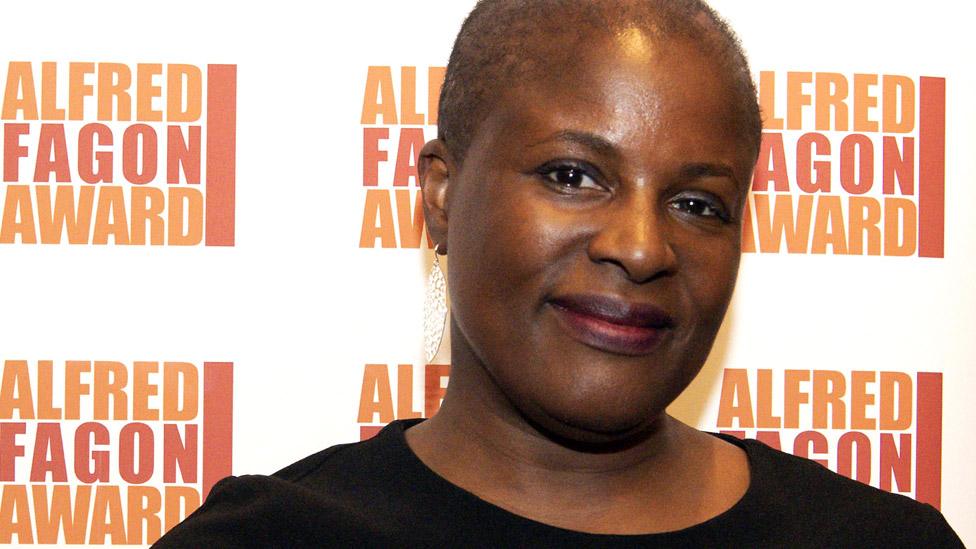Alfred Fagon statue: Police release photo of man they want to talk to
- Published
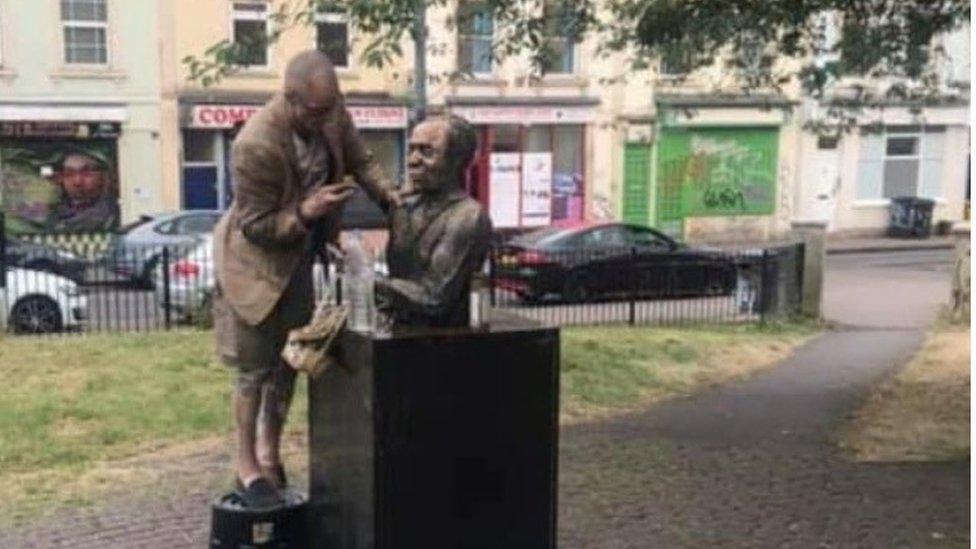
Police have released this image of a man they want to talk to
Police investigating the damage to a statue of a Jamaican poet in Bristol have released an image of a man they want to talk to.
Avon and Somerset police were told an unknown substance had been applied to the bust of Alfred Fagon on 11 June.
Concerns were raised it may have been vandalised after the toppling of the Edward Colston statue during the Black Lives Matter protest days earlier.
But some witnesses believed it was an attempt to clean the bust.
The image shows a man standing on a stool to reach the statue.
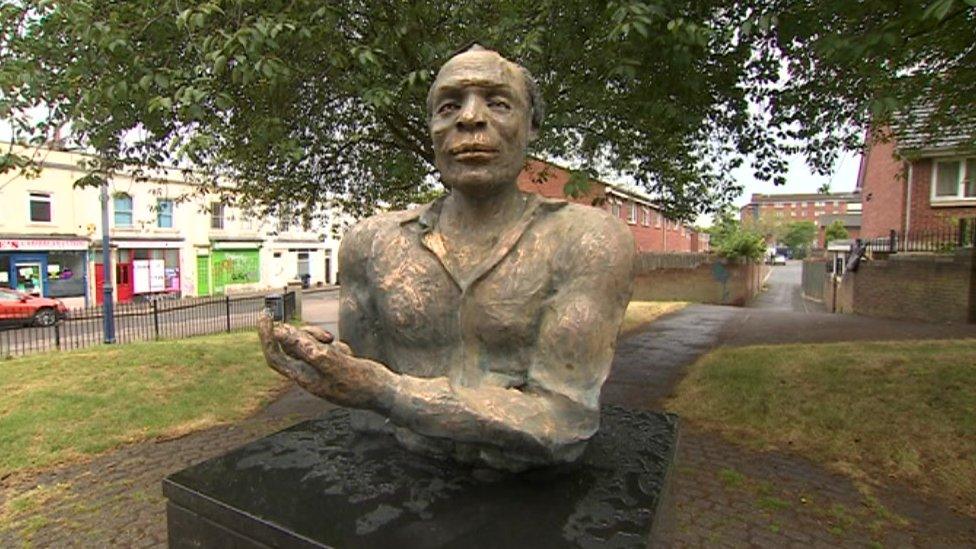
It is not yet known whether the statue has been permanently damaged
Bristol City Council has declined to provide any details on how the statue has been damaged due to the police investigation.
A council spokesperson added: "Bristol City Council officers are working to restore the Alfred Fagon statue as soon as possible."
The monument to Alfred Fagon in St Pauls, Bristol, was erected in 1987 on the first anniversary of his death.
Mr Fagon was the first black person to have a statue in their honour in the city.

Who was Alfred Fagon?
He was born in Jamaica in 1937, the third of nine brothers and two sisters.
At the age of 18 he came to England to work on the railways before joining the army and later moving to Bristol to work as a welder in the 1960s.
One of his first plays, No Soldiers in St Pauls, explored the social tension between the police and the black community in 1970s Bristol.
His final role was in the BBC's Fighting Back, set in St Pauls.
He died from a heart attack in 1986 outside his flat in Camberwell, London.
At the time police claimed they were unable to identify him and he was given a pauper's funeral.
The annual Alfred Fagon Award was named after him and is for playwrights of Caribbean or African descent, resident in the UK.

- Published12 June 2020

- Published8 June 2020
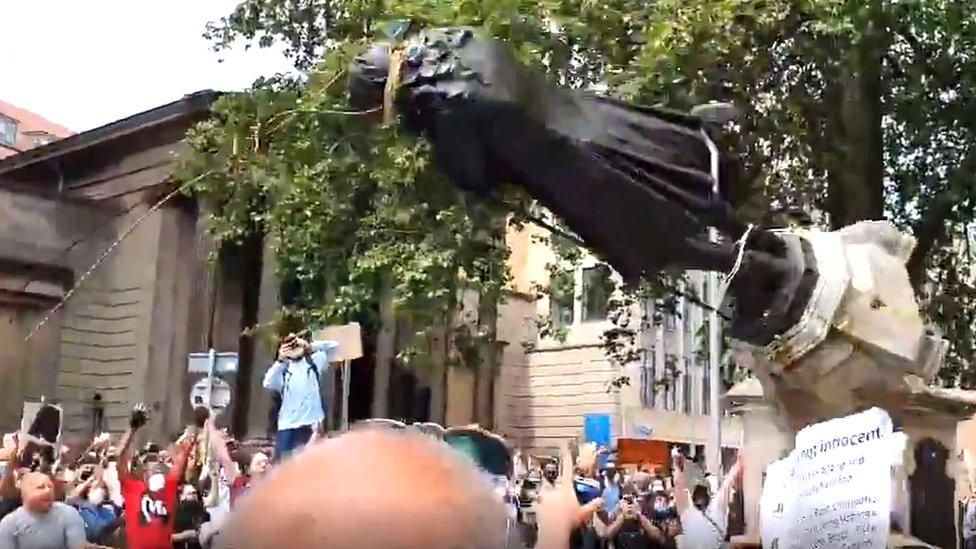
- Published8 June 2020
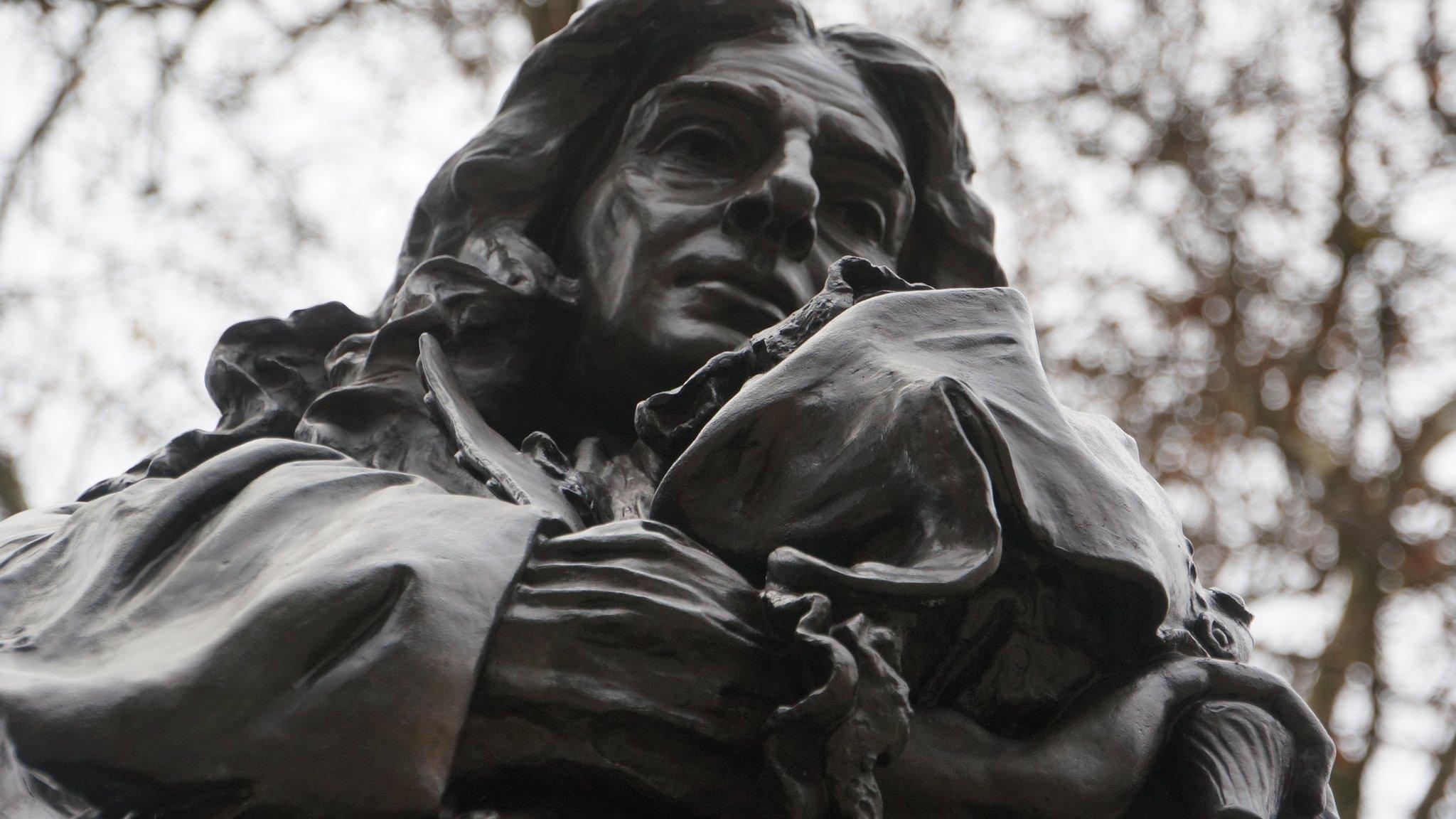
- Published18 March 2020
